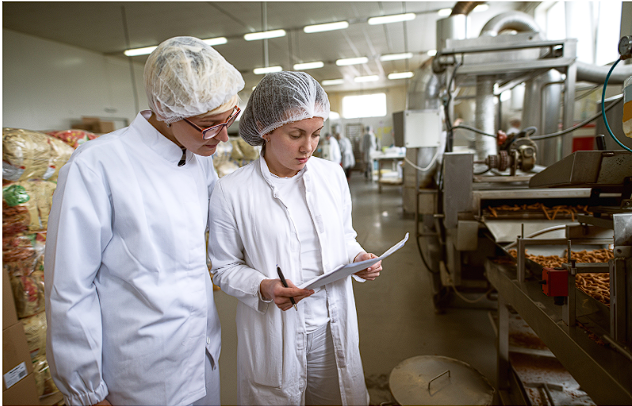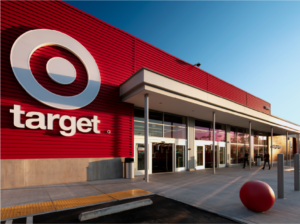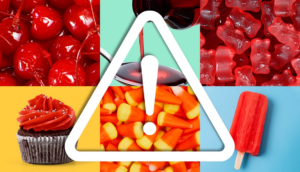- Food Startup Funding: Do you need investors to build a successful food or beverage business? - February 29, 2024
- Explaining Food Certifications & Labeling: Organing, Non-GMO, Halal, Kosher, & More! - February 29, 2024
- Explaining the Meaning of MOQ - February 29, 2024
In a post-pandemic world, maintaining food safety and quality is of the utmost importance to bolster public health. Food businesses must abide by strict regulations to ensure their products are fit for human consumption. According to the World Health Organization, “an estimated 600 million – almost 1 in 10 people in the world – fall ill after eating contaminated food and 420,000 die every year.”
These statistics highlight the critical need for stringent food quality control and assurance measures across the industry. But your focus is on your product…so who is managing food quality control and assurance for your product?
Enter PartnerSlate. We help you find the right co-packer and co-manufacturing partners for your product with our proprietary matching platform. The right production partner fulfills all your manufacturing and packing needs while adhering to the most stringent laws on quality control and assurance, so you can focus on the business.
What is food quality control?
Food quality control is a critical aspect of food safety management that focuses on implementing and enforcing measures and procedures to assure consistent quality and safety of food products.
As a food business owner, adopting quality control strategies is crucial in meeting customer expectations and adhering to regulatory requirements. According to the Food and Agriculture Organization of the United Nations, effective food quality control systems can help prevent diseases, ensure food safety, and maintain consumer confidence in your products.
Food quality control encompasses various measures, such as:
- Monitoring and analyzing product quality: Regular testing helps detect contamination or inconsistencies and allows businesses to address issues swiftly, protecting consumers and the company’s reputation.
- Ingredient specifications: Detailed ingredient specifications ensure their quality, safety, and consistency, defining acceptable contaminant levels, grading criteria, and supply sources.
- Eliminating contamination sources: Identifying and addressing contamination sources within the production process helps prevent the spread of foodborne pathogens or contaminants.
- Quality characteristics: Meeting established standards for product characteristics, such as taste, texture, and appearance, ensures consumer satisfaction and market compliance.
- Quality control procedures: Implementing a comprehensive set of procedures across all production aspects can include best manufacturing practices, sanitation, equipment maintenance, and employee training.
Effectively implementing food quality control measures minimizes the risk of recalls, protects customers’ health and safety, and promotes a culture of excellence, paving the way for higher revenues and a robust marketplace reputation.
What is food quality assurance?
Food quality assurance is a comprehensive approach that focuses on the food business’s overall responsibility to ensure its products meet or exceed customer expectations and regulatory requirements. The globally recognized ISO 22000 standard highlights the importance of food quality assurance in maintaining food safety and driving continuous improvement throughout the supply chain.
Implementing food quality assurance practices is crucial for long-term success. Key aspects of food quality assurance include:
- Hazard Analysis and Critical Control Points (HACCP): A HACCP system helps identify and control potential hazards in food production processes, ensuring the highest level of food safety.
- Adherence to international regulations: Compliance with local and international food regulations is crucial for a business’s legal and reputational standing.
- Documentation and traceability: Maintaining accurate records supports traceability and transparency, enabling quick issue identification and resolution.
- Supplier and distributor management: Implementing stringent supplier qualification processes ensures the safety and quality of sourced materials and products.
- Employee training: Continuous training on safety and quality management systems fosters a culture of quality and enhances overall performance.
- Continuous improvement: Regularly reviewing food quality assurance processes promotes system enhancement and competitiveness in an evolving industry.
Investing in food quality assurance can lead to a more robust market reputation, increased consumer trust, and a solid foundation for business growth.
Searching for the Right Co-packer?
Food Quality Control vs. Food Quality Assurance
While food quality control and food quality assurance share common goals, they differ in scope and focus. Let’s examine the distinctions between these two important aspects of food safety to help business owners like you grasp their complementary roles and the necessity of implementing both approaches for optimal results.
Food quality control primarily focuses on specific measures and procedures targeting the product’s quality, such as testing, monitoring, and evaluating individual characteristics like taste, texture, appearance, and safety. It aims to identify issues and correct them during the production process to ensure finished products adhere to defined standards. Food quality control helps maintain consistency in the company’s offerings, prevent incidents of contamination, and comply with regulations.
Food quality assurance encompasses a holistic approach, integrating a wide range of practices and programs to maintain and enhance the entire food industry’s standards. It goes beyond the product and includes all aspects of a food or beverage business, such as:
- Supplier management and qualifications
- Employee training and development
- Sanitation and hygiene programs
- Documentation and traceability
- Regulatory compliance
- Continuous improvement of processes and systems
Food quality assurance underscores the business’s overall responsibility to assure that its products consistently meet or exceed customer expectations and adhere to regulatory requirements. It is a proactive approach that emphasizes preventing issues rather than just finding and fixing them.
Key Procedures in Food Quality Control
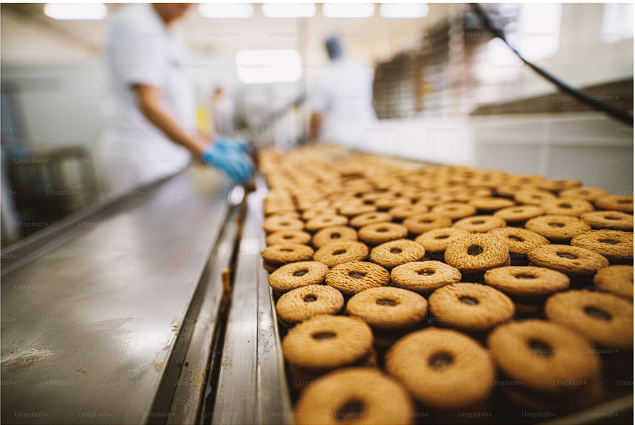
1. Product & Recipe Formulation
The first step in the process of food quality control is developing a well-defined product recipe and formula. This means identifying ingredients, ratios, and processing methods to be followed during production.
2. Manufacturing Management
Manufacturing processes must be closely monitored, including personnel training and the use of appropriate equipment. Proper management ensures that quality control procedures are consistently executed, resulting in safe and high-quality products.
3. In-Process Records
Maintaining in-process records and documentation helps track production and identify potential issues that could impact food quality. This can include logs for batch production, temperature checks, and weight measurements.
4. Packaging & Labeling
Ensuring accurate packaging and labeling can prevent contamination and provide information on product contents, allergy warnings, and nutritional details. Conforming to local and international regulations for labeling is also critical.
5. Sanitation & Hygiene
Regular cleaning of facilities, equipment, and storage areas helps prevent contamination from pests and pathogens. Employees must maintain personal care and hygiene and adhere to proper sanitary practices.
6. Warehousing Requirements
Proper storage conditions, including temperature and humidity control, can significantly influence product quality, shelf life, and safety.
7. Create Recall Plans
In case a contaminated product reaches the market, having a recall plan is crucial for effectively managing and limiting potential damage to consumers and the brand.
Ready to Find Your Perfect Co-packer?
Key Procedures of Food Quality Assurance
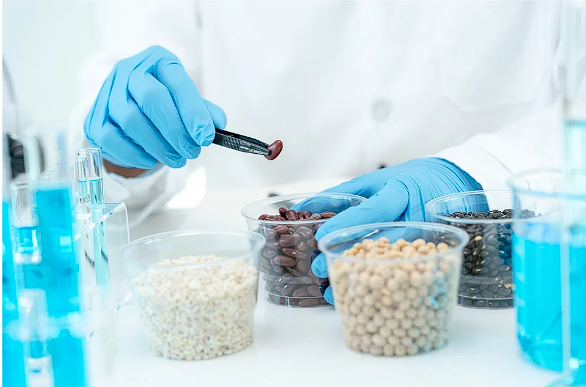
1. Ingredient Specifications
Establishing and adhering to well-defined ingredient specifications is essential for guaranteeing consistency in product quality and mitigating risks from external suppliers.
Maintaining detailed specifications for factors like origin, grading criteria, and permissible levels of contaminants will help ensure the safety, quality, and uniformity of your products.
2. Vetted & Approved Suppliers
Working with reliable and established suppliers guarantees access to high-quality ingredients, playing a pivotal role in food quality assurance. Carefully vetting and selecting suppliers based on criteria like certifications, reputations, and consistency in delivering high-quality products can mitigate risks associated with raw materials and help maintain consistency in the final products.
3. Incoming Goods Inspections
Conducting regular inspections of incoming raw materials is a proactive measure for verifying their quality and ensuring that they comply with established standards. This helps maintain the integrity of your final products by detecting inconsistencies or issues with the supplier’s quality controls in the early stages of production.
4. Determine Product Standards
Setting clear and quantifiable product standards guarantees consistency, streamlines production processes, and helps compliance with regulatory requirements. As a food business owner, it is vital to establish standards for aspects like taste, appearance, shelf life, and nutritional values, contributing to a more coherent and efficient food quality assurance system.
5. Product Audits & Checklists
Regular audits and checklists serve as invaluable tools for verifying that your business adheres to proper manufacturing practices, maintains good hygiene standards, and complies with essential regulations. Implementing scheduled and surprise audits can identify areas of non-compliance, encourage a culture of accountability, and ensure that corrective measures are taken promptly.
6. Make Data-Driven Improvements
Utilizing data gathered from audits, inspections, and testing allows for identifying areas for improvement and continuously refining your food quality assurance systems. By making data-driven decisions, your business can optimize operational efficiency, boost product quality, and adapt to changing regulatory landscapes or consumer preferences.
Find Food Manufacturers with Exceptional Food Quality Control & Assurance
Quality assurance, adherence to regulations, and effective control mechanisms are the foundations of a successful and thriving food business. By committing to the highest standards, food companies can secure their future and guarantee they provide the highest quality goods to their customers. That, in turn, is the recipe for lasting success within the food industry.
To ensure your company’s longevity, it’s crucial to partner with manufacturers that prioritize food quality control and assurance. PartnerSlate’s Marketplace provides an extensive network of food and beverage manufacturers and packagers, connecting you to high-quality production partners with a focus on delivering exceptional products that meet international standards.
You can create a detailed project and post it anonymously to the marketplace where qualified manufacturers with the right capabilities can come and show interest in your project. PartnerSlate will then get you connected directly and streamline the onboarding, communication, and document sharing so you can get started with a co-packer that values your product’s quality as much as you do.
